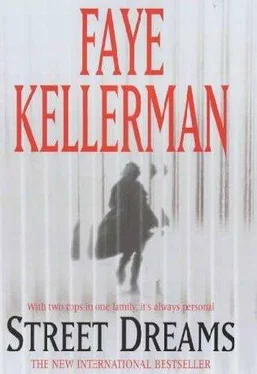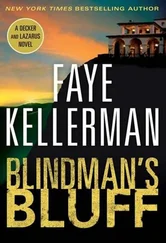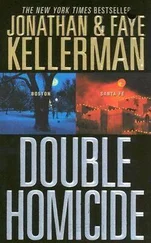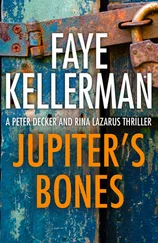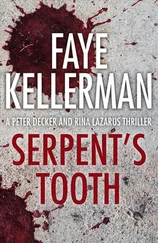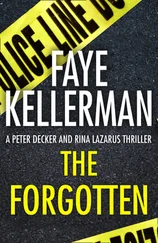He took my hand. “You are not slick, Cynthia, but you are always sincere.” He kissed my fingers one by one, then gently swiped my nose with his index finger. “Eat.”
I speared another leaf of romaine, my eyes sweeping over his face. Again he was studying me, those long, luscious lashes sweeping over those magnificent pale whiskey eyes.
He really looked fine!
I nibbled on salad, but suddenly everything was tasteless.
Who was I kidding?
Oh my God, I was sinking again.
I summoned the waiter, requesting our entrées to go, along with the check.
The coast of Californiais God’s kissed countryside from San Diego to the Oregon border-blue iridescent seas on one side, towering verdant mountain majesty on the other. Traveling north from Santa Barbara on 101, Decker couldn’t have asked for lovelier weather. It was in the low 70s with the sun playing peekaboo behind woolen tufts of crystalline clouds. As he turned east onto 234, going deep into the Santa Ynez Valley, the Porsche began to climb between granite walls of imperial rock and twist seamlessly through the winding canyons. The temperature dropped and a fine mist hovered above.
“Spectacular,” Rina whispered.
“Hannah’s getting bigger,” Decker answered. “We should really do this more often.”
“Yes, we should.” Rina adjusted the baseball cap on her head, enjoying the wind and sun on her face. “It’s nice to feel young.”
“Free,” Decker said. “We never had much of this.”
“I know. Instant family when we married. Poor you.”
“Not poor me,” Decker told her. “Rich me. I wouldn’t trade it for anything. Still, you’ve got to find a balance. We shouldn’t have to use a project as an excuse to get away for a weekend. But since we did come up with a purpose, what is the game plan here?”
“I have a couple of questions about the murder, but if I don’t get to ask them, I’ll be fine.” Rina took in a deep breath and let it out. “It’s really all about my mother’s childhood. I don’t even care about the murder anymore. That was just the catalyst.”
“I’m thrilled to hear you say that. Basically, I think we should just let the ladies talk.” Decker took in a lung’s worth of pine-scented air. A minute later, they were off the freeway, the exit for Solvang putting them onto Mission Avenue, a two-way boulevard lined with imposing cedars, regal in size and wide in girth. For a few miles, they passed farm country and orchards, patches of foot-high baby avocado trees dotting the earth like plugs in a hair transplant. A hundred yards later, they drove by an ostrich ranch. No sign of the big beasts, but coming up from L.A., they had seen a genuine llama ranch, so Decker was sure the flightless birds were somewhere near.
Soon they drove by the official green sign welcoming the visitor to Solvang-population 5,332.
Danish Disneyland.
The little tourist town really had an amusement-park feel to it, down to the street names-Vester, Aarhus, Nykobing, Midten-using Hof and Sted instead of street, avenue, or lane.
Lifted right out of a fairy tale: picture-perfect cottages with mullion-paned windows, dozens of gables, and multipeaked roofs topped with special tiles evoking thatched straw. Cute little bungalows of sparkling white stucco and red brick, overwhelmed with gingerbread, set on lots with meticulously planted flower gardens. Almost all the dwellings had exterior walls deluged with Tudor-style trim-stripes and triangles and squares of brightly painted wood appliqué, light blue being the most common color for the decorative beams. But some of the owners had chosen brown or green or in some cases bright red. There were lots of white picket fences and many second-story balconies ringed with white dowel railings. Two of the motels on Mission Avenue had life-size windmills, another had a clock tower with a weather vane.
Decker had never seen streets so clean, as if they were washed daily.
The business district, also on Mission, was a couple of miles long with architecture that was nearly identical to the residences. The shops and restaurants and bacaris were owned by individuals with names like Mortensen, Petersen, and Olsen. And the names weren’t just for atmosphere. Both he and Rina agreed that they had never seen so many white-haired, pink-complexioned elderly people in such a small geographical area. When they drove past the local school-across the street from a Lutheran Church-it was all fair skin and light hair, except for a clique of Native American children.
Anika Lubke lived in a bright yellow one-story house, the door surrounded by two bay windows and the sides trimmed with blue wood beams. Set into a pole was a Danish flag guarding the entryway; the hand-painted address numbers were red on blue-and-white delft tiles. The front yard was a pallet of color, a profusion of wildflowers. Someone had plunked a stuffed Nordic seaman, complete with beard and cap, smack in the middle of a daisy bush-the Danes’ answer to a scarecrow. Decker parked the Porsche and checked his watch. Ten-forty: They were twenty minutes early.
“What do you think?” he asked Rina.
“I don’t think they’d mind. But if you’d feel uncomfortable, we can walk around for a few minutes.”
Before they could decide, the door opened. The woman who came out was tall and thin, wearing a housecoat printed with calla lilies. Her white hair was tied into a long ponytail, her complexion fair with rosy cheeks. “You are Lieutenant and Mrs. Decker?”
“Hi,” Rina said from the curb. “We’re a little early.”
“No, no, it’s fine.” Her accent was light and crisp. “Come in, please.”
The pathway to the front was narrow. Decker told Rina to go first. The woman introduced herself as Anika, then stepped aside, allowing them to walk into a compact living room with blond hardwood floors and yellow washed walls. The furniture was simple in design and made by someone with a utilitarian eye. The couch and chairs were straight backed and upholstered in tiny blue checks, holding a couple of rudimentary pillows. The coffee table was a trunk, with hand-painted flowers and swirls, which looked to be genuinely old. The walls were hung with oil still lifes, mostly florals: original paintings but not very good. There were also a couple of sketches and a map of Denmark. No family photos. Maybe she kept them in the bedroom.
The air was heavy with the smell of cabbage.
“Lunch is not ready.” Anika flailed birdlike arms. “I do apologize.”
Rina smiled. “It’s not a problem.” Up close, Anika was wrinkled, her face furrowed and drooping with fatless skin. But her blue eyes sparkled, as did her teeth, though Rina suspected they were dentures. “The food smells wonderful, Miss Lubke, but unfortunately we can’t eat it. We’re kosher-”
“ Ach! But of course.”
“I insist that you eat when it’s ready.” Rina inhaled deeply. “I’m sure it’s my loss. What is it?”
“ Hvidkälsrouletter -cabbage roll with meat. I can make up some vegetarian.”
“No, no, no,” Rina said. “Please don’t bother. If you want to serve us anything, I wouldn’t mind some tea.”
“And you, Lieutenant Decker?”
“Tea is fine.”
“ Kommt sofort! Right away.” She moved with a sprightly walk. A minute later, she returned from the unseen kitchen. “I put the water up to boil. Marta is in church. We were odd-Lutherans in Bavaria. The state is very Catholic, their churches rococo in style because it is near Italy. Also, there were many Russian aristocrats in Bavaria, so the churches have that onion-dome Russian architecture. Inside, they are filled with marble and gold, with angels and cherubs floating in a sky that is painted on the ceiling. It is not my idea of Heaven.”
Читать дальше
